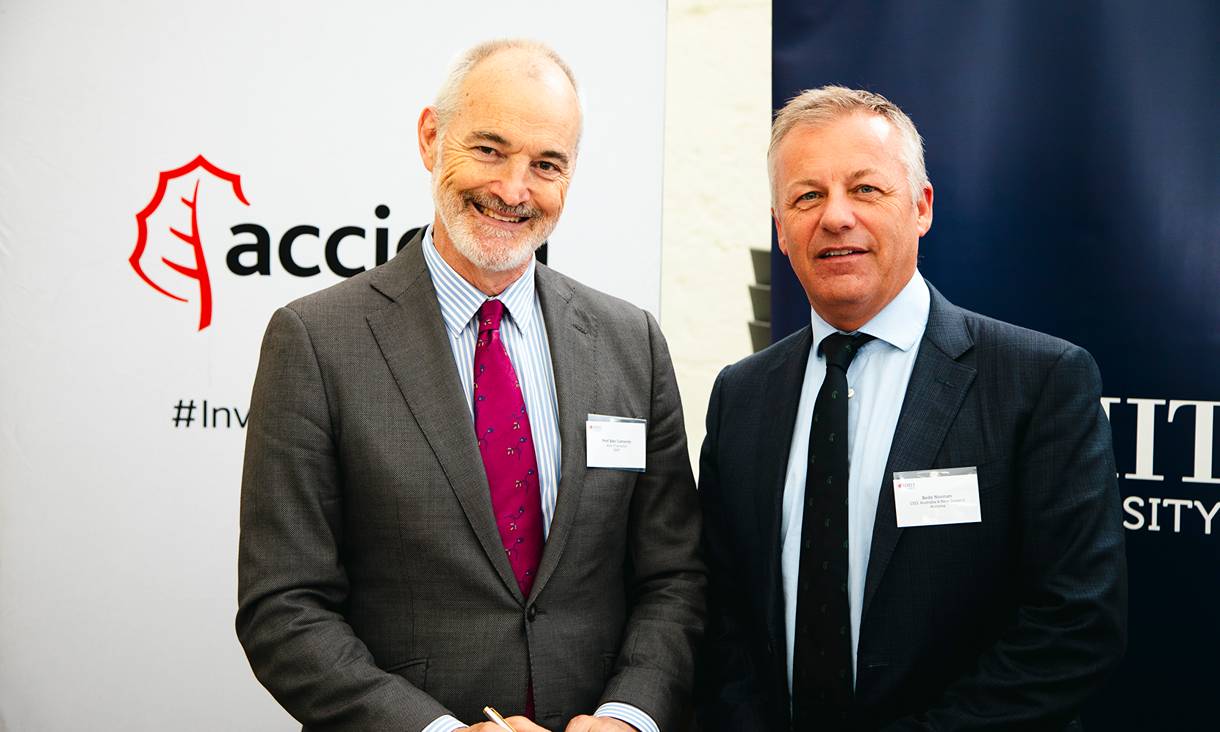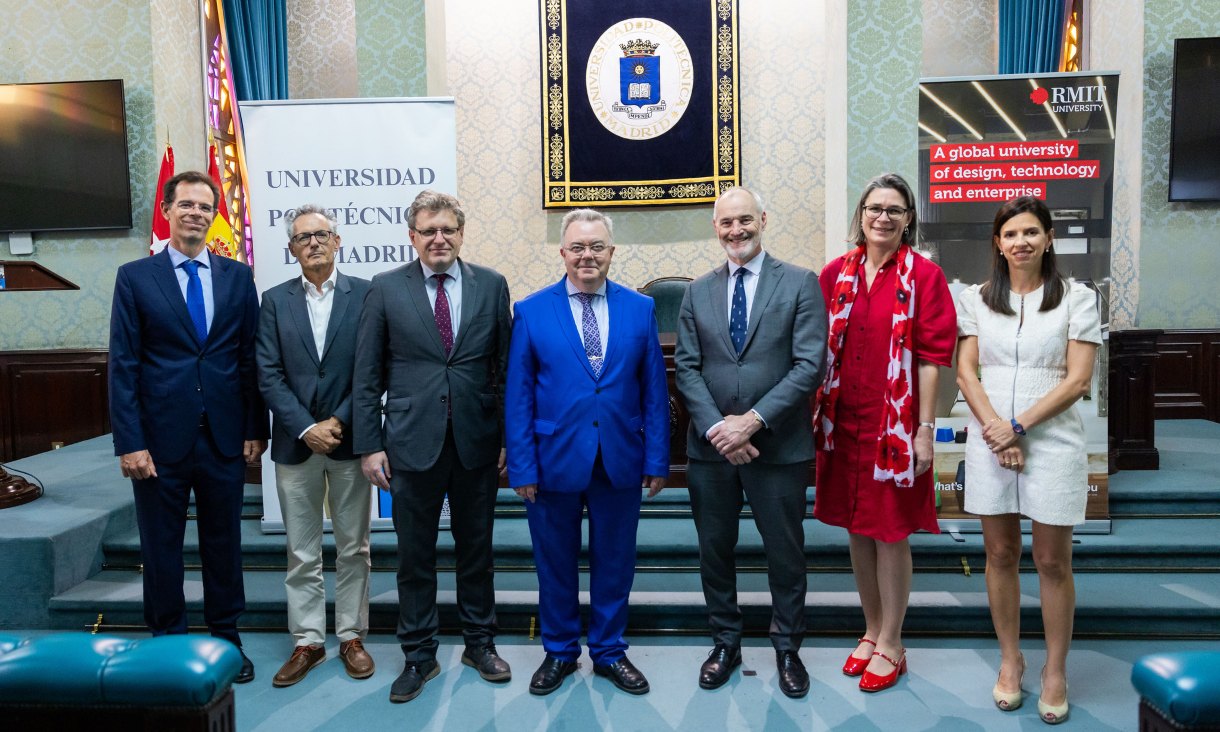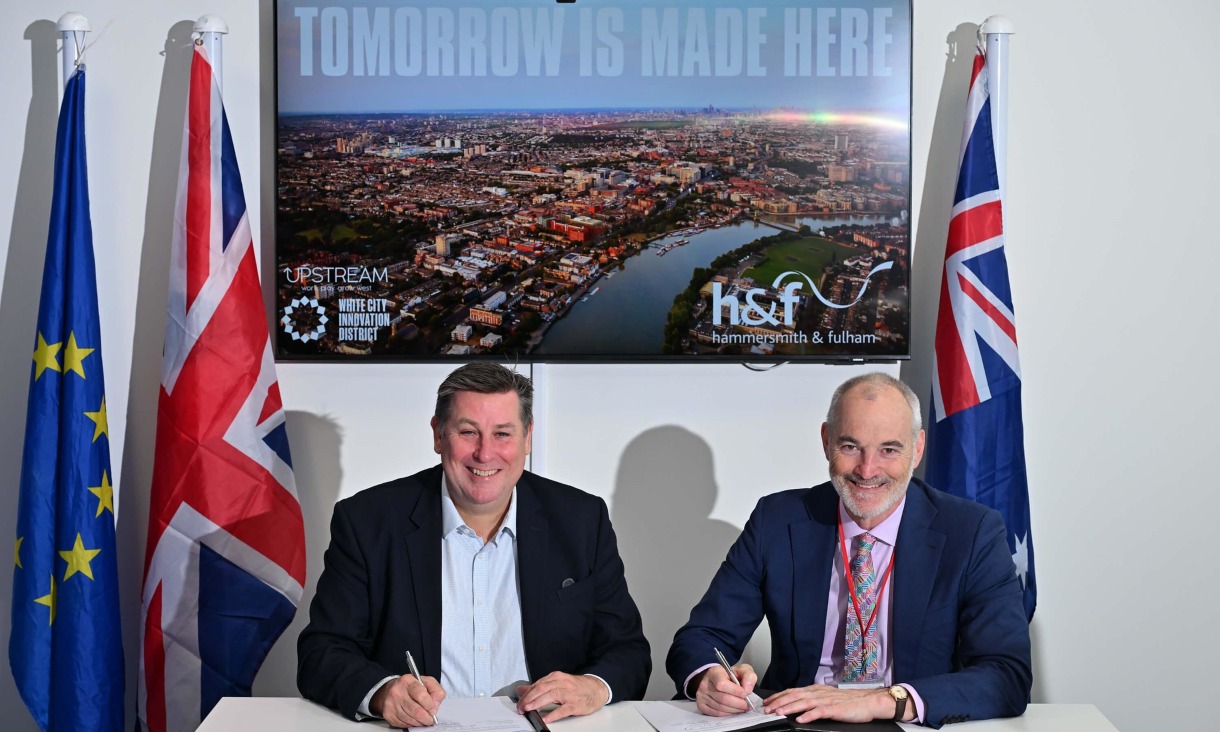
How can healthtech improve patient care: Insights from global experts
The healthcare sector has experienced a significant transformation in past years due to the digitalisation of healthcare services and associated ecosystems, providing both opportunities and challenges when it comes to patient care.
Experts from industry, academia and public administration recently discussed sector challenges at a conference co-organised by RMIT Europe and Vall d’Hebron Hospital Campus in Barcelona.
Four key points for transforming healthcare were identified.
The multi-stakeholder approach
Olga Kokshagina, VC Research Fellow at RMIT’s Graduate School of Business and Law, said one of the key challenges for the healthtech sector is the adoption of a patient centric perspective across the entire value chain.
“Collaboration is one of the most important challenges when it comes to procurement and value-based healthcare,” she said.
“We need to find new ways for hospitals to collaborate efficiently with procurement providers, purchasing and most importantly, with patients.”
Kokshagina, who recently led a study on value-driven innovation in healthcare with Vall d’Hebron Hospital Campus, said flexibility across stakeholders is key.
Putting the patient at the centre
With increasing pressure on health budgets resulting from an ageing population, experts at the conference flagged that one of the most critical challenges for the European healthcare sector is improving patient outcomes.
Dr Yolima Cossio, Director Information Systems at Vall d’Hebron Hospital Campus, said that there must be mutual understanding of the value in healthcare between professionals, patients, families as well as the broader community.
“We can’t make decisions without knowing what value means for these groups,” she said.
Dr Eva Aurin, Head of Innovation & e-Health at Vall d’Hebron Hospital Campus, also highlighted the importance of a patient-centred approach.
“It’s impossible to construct a solution with only doctors and nurses – it’s important to take a holistic approach with a multidisciplinary team to construct the best solution for the patient,” she said.
Dr Carlos Molina, Head of the Stroke Unit at Vall d’Hebron Hospital Campus, shared his experience of a value-based project implemented at the hospital.
“We implemented a project called stroke care economics for patients who are candidates for reperfusion – a type of surgery where clots in the brain can be removed by a catheter,” he said.
“By putting in place new technology to improve communication between hospital staff, we were able to cut 26 minutes from the time the patient arrives at the hospital to when the surgery starts.
“As a result of removing this ‘no-value’ step of the process, we’ve saved brain tissue, improved patient outcomes and ultimately saved costs for the hospital in terms of stroke patient treatment,” Molina said.
Digital transformation as an enabler for building value
Julio Sánchez, Head of Digital Health Operations at Telefónica in Spain, said digital transformation is key to enabling better patient outcomes.
“The best technology is the technology that’s invisible for the patient,” he said.
“We must be able to embedd technology so that it’s used in a natural way – without concern of how it works.”
Procurement as a key driver
Javier de Oca, CEO & Co-founder of IOMED Medical Solutions, said procurement is another key driver to build value in the healthcare system.
“We need to re-define procurement, open up the concept and bring in new dynamics of collaboration with public and private entities,” he said.
“We need to include small and medium entities and make them agile to ensure that different stakeholders are aligned in the procurement process.
“This will help to provide clear outcomes and value for the patient,” de Oca said.
Story: Patricia Lora
- RMIT Europe
- Science and technology
- Society
Related News
New partnership with global infrastructure giant ACCIONA to advance sustainability
RMIT and ACCIONA have signed a partnership agreement to drive innovation and build skills for a sustainable future.
Enabling circular economy practices in sustainable metal production
Researchers in the DIAMETER project will develop digital platforms focused on augmented sustainability and circularity of additive manufacturing and machining processes.
RMIT and Universidad Politécnica de Madrid (UPM) announce dual degree partnership for civil engineering students
A new strategic collaboration with UPM will allow students to enrich their academic experience in an international environment.
RMIT partners with London Borough of Hammersmith & Fulham to boost cross-border tech innovation
The new agreement will connect the White City and Melbourne Innovation Districts to create new opportunities and strengthen economic growth.
Acknowledgement of Country
RMIT University acknowledges the people of the Woi wurrung and Boon wurrung language groups of the eastern Kulin Nation on whose unceded lands we conduct the business of the University. RMIT University respectfully acknowledges their Ancestors and Elders, past and present. RMIT also acknowledges the Traditional Custodians and their Ancestors of the lands and waters across Australia where we conduct our business - Artwork 'Sentient' by Hollie Johnson, Gunaikurnai and Monero Ngarigo.



